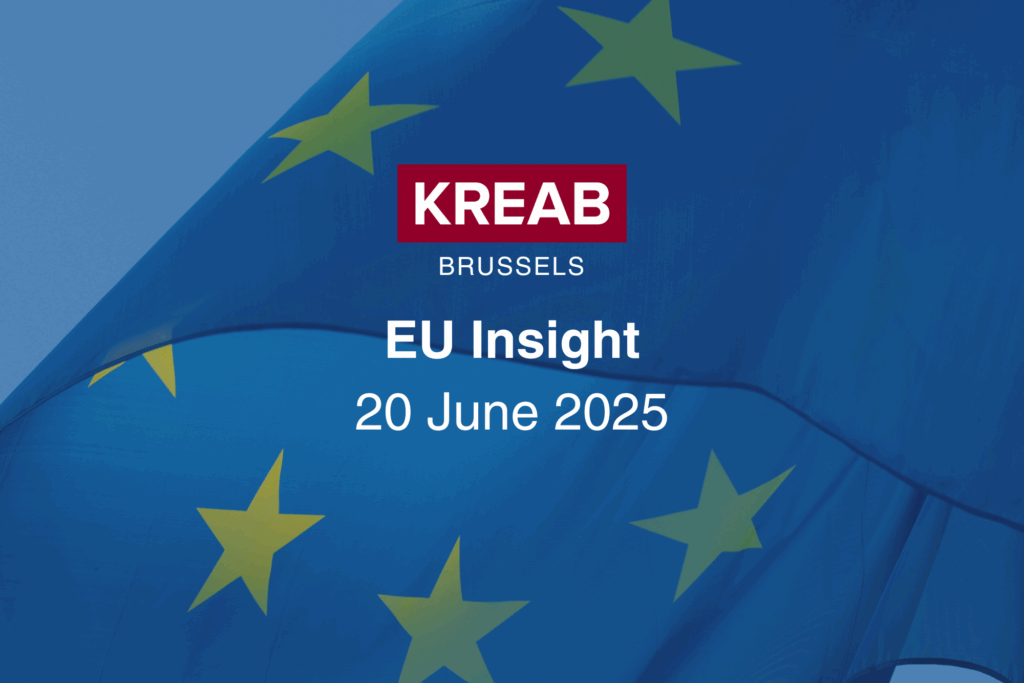
20/06/2025
EU Insight 20 June 2025
Brussels, 20 June 2025
G7 MEETS AMID GLOBAL TENSIONS, EU PRESSES UKRAINE, AND ECONOMIC SECURITY
With geopolitical tensions rising, leaders gathered in Canada for this year’s G7 summit, where the EU pushed for greater unity on economic security and support for Ukraine. Commission President von der Leyen and Council President Costa urged action to reduce strategic dependencies, especially on China, which von der Leyen accused of distorting markets. The EU pressed G7 partners to implement a Critical Minerals Action Plan and strengthen supply chains. Despite broad support for Ukraine, the summit ended without a joint statement after US President Trump resisted tough language on Russia. Leaders also discussed conflicts in the Middle East and launched new G7 initiatives on AI, quantum technologies, and wildfire resilience.
COMMISSION TABLES DEFENCE READINESS OMNIBUS TO SPEED UP INVESTMENTS
Continuing its drive to streamline EU rules, the Commission unveiled the Defence Readiness Omnibus, a legislative package aimed at accelerating defence investments and ramping up industrial readiness. The proposals would cut red tape, simplify permitting for defence projects, and ease access to EU funding, all part of a bid to help Member States and industry respond faster to evolving security threats. The initiative also addresses sector concerns by clarifying procurement, chemicals regulation, and sustainable finance rules for defence firms. In a parallel move, the EU agreed to launch talks on a Security and Defence Partnership with Australia, signalling the desire for deeper cooperation on defence, cyber and counter-terrorism.
COMMISSION PROPOSES GRADUAL BAN ON RUSSIAN GAS AND OIL IMPORTS BY 2027
As part of ongoing efforts to cut the EU’s reliance on Russian energy, the Commission has proposed a legal phase-out of Russian gas and oil imports by end-2027. The plan follows the REPowerEU Roadmap and responds directly to Russia’s weaponisation of energy in the context of the war against Ukraine. It would ban new gas contracts from 2026 and end most existing supply agreements by 2027, with limited exceptions for some landlocked Member States. By tightening controls and requiring diversification plans, the proposal aims to boost Europe’s energy security and independence, while maintaining stability in EU markets. The draft now heads to the European Parliament and Council for negotiations.
EU LAWMAKERS AND MINISTERS PUSH FOR STRONGER ENERGY GRIDS
MEPs are stepping up calls for tighter coordination and resilience in Europe’s power grids, warning that fragmented systems leave the bloc vulnerable to blackouts and sabotage. In a resolution adopted on 19 June, lawmakers urged the Commission to accelerate work on interconnections, storage, and cybersecurity. The Council’s latest conclusions echo this urgency, framing grid resilience as central to completing the Energy Union and securing supply amid the current volatile geopolitical climate. EU energy ministers backed plans for a European Grids Package, improved crisis preparedness, and fast-tracking key infrastructure projects, citing April’s Iberian blackout as a wake-up call. The Polish Presidency also called for reducing strategic dependencies and safeguarding critical infrastructure against hybrid threats.
POLICYMAKERS ADVANCE FINANCIAL SERVICES REFORMS AS POLISH PRESIDENCY WRAPS UP
As the Polish Council Presidency nears its end, EU policymakers have advanced several notable files in the financial services space. Ministers agreed on their position on new payment service rules, aiming to better protect consumers against fraud, improve transparency on fees, and support innovative digital payment options. The package, which will now be negotiated with the Parliament, is intended to boost consumer confidence while allowing the EU to keep pace with evolving payment technologies. Co-legislators also reached a deal to speed up settlement of securities trades to one business day, in line with global moves to make markets safer and more efficient. Meanwhile, the Commission proposed measures to revive the securitisation market by cutting red tape and encouraging lending to businesses and households.
COMING UP NEXT WEEK
- 23 June: Foreign Affairs Council. On the agenda: Ukraine, China, Middle East.
- 23-24 June: Agriculture and Fisheries Council. On the agenda: forest monitoring framework, simplification in agriculture, and sustainable fishing in the EU.
- 23-24 June: Informal meeting of tourism ministers.
- 24 June: General Affairs Council. On the agenda: European Semester, rule of law.
- 25 June: College of Commissioners. On the agenda: New State Aid Framework, Strategy on Space Economy, EU Space Act.
- 26-27 June: European Council. On the agenda: Ukraine, Middle East, European defence and security; EU in the world; competitiveness; migration.

Did you like this article? Contact us to hear more about Kreab Brussels’ practice and services.

